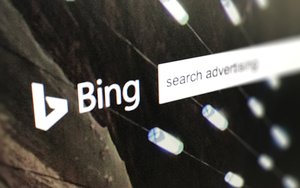by Laurie Sullivan@lauriesullivan, November 18, 2016

Microsoft recently awoke a sleeping giant after remaining stagnant for a decade. Some attribute the awakening to Satya Nadella, who took the reins as Microsoft CEO in February 2014.
“Satya turned our inward gaze outward,” James Whittaker, distinguished technical evangelist at Microsoft, told Search Marketing Daily. The “our” refers to the thousands of people at Microsoft working on the future of technology.
“When you get that many smart people looking ahead it can get pretty magical,” he said. “I get my mind blown on a weekly basis. That hasn’t happened for a while. A lot of us are feeling really good about the future.”
That sleeping giant — search — will rely on artificial intelligence and cloud services to forever change the advertising industry. The media will still rely on intent signals to serve ads, but some of the smartest minds in search advertising question how much longer marketers will log on to Google AdWords and Bing Ads or Yahoo Gemini to create and schedule campaigns or whether machines will connect brands with consumers through referrals and other signals using artificial intelligence and cloud services.
Machines will determine the consumer’s intent based on data. But when the world becomes reduced to data, and machines determine someone’s intent, not their interest, advertising in the way the industry does it today no longer makes sense, he said.
“We will need to re-architect advertising, in general, when people step out of the equation and machines are making decisions for us based on actual data,” he said.
Whittaker declined to describe how Bing Ads might work, but he said advertising will become more about the value of the product based on data collected through Internet-connected devices such as hot tubs, refrigerators, running shoes, online movie ticket purchases, point-of-sale systems in grocery stores, and more. These Internet-connected devices will communicate with each other to determine the best products for specific scenarios based on the individual consumer.
Some might call this real personalization, personalizing the ad and the product, and it will force marketers to work more closely with product development.
“Rather than injecting an ad, you will need to find out how to inject actual value,” Whittaker said. “One advantage advertisers have is data from connected devices, machines, will tell them this is the best chemical for a hot tub in the North West and this is the algorithm used to determine it.”
Price could become one criteria. Adding a conditioner to soften the water might be another. All those data points will become important to personalize products.
Whittaker said it won’t be about placing an ad in front of as many people as a brand can, but rather ways to inject value into the products and the services to satisfy intent. The AI will inform the machine such as a smartphone when it picks up the intent of the consumer to provide a solution. Sometimes that will mean automatically replenishing something the consumer had already purchased.
“The knowledge from the data to do all this will be in the cloud,” Whittaker said. “One reason this is finally happening is because of the cloud.”
Technology goes in 10 years cycles and it’s as accurate and reliable as Moore’s Law, he said.
< ?XML:NAMESPACE PREFIX = “O” />< ?xml:namespace prefix = "o" />
MediaPost.com: Search Marketing Daily
(14)